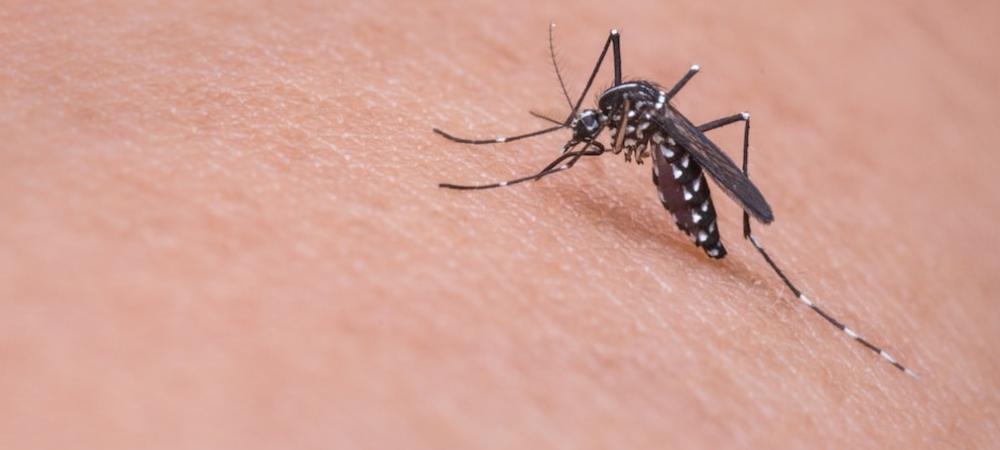Everything You Need to Know About the Zika Virus in Texas

The Zika virus has been in the news constantly for the past year and a half--and for good reason. As a quickly spreading virus, the number of reported cases in the United States has increased year after year, causing valid concern for many--particularly pregnant women. While it is discussed often, many still feel left in the dark about the details of Zika and whether it’s a real threat.
As professionals who deal with mosquitoes for a living, we've gathered our experts to answer the most common questions regarding Zika Virus and mosquito prevention below!
Q: What is the Zika Virus?
A: The Zika virus is a mild, flu-like virus that is typically spread through the bite of an infected mosquito. Zika may also spread from mother to child during childbirth, and has been reported to also be spread through blood transfusions and sexual contact. While the Zika virus rarely causes extreme illness, it can, in fact, cause severe birth defects for pregnant women.
Q: Where do Mosquitoes with Zika Come From?
A: The most common type of mosquito that carries the Zika virus is the Aedes species of mosquito. Aedes mosquitoes primarily live in Central and South America, and parts of Africa, India, and Southeast Asia. However, there are reported cases of local transmission in the U.S., particularly Texas and Florida, meaning that species of mosquitoes must be here as well.
Q: Am I Safe from Zika in Texas?
A: Because of travel, no place is truly safe from Zika--including Texas. In recent years, Aedes mosquitoes have been found living in South Texas and along the Texas coast. However, Aedes mosquitoes have also been found in other areas of Texas, including urban areas.
323 cases of Zika were reported in Texas in 2015 and 2016. As of early June, 14 confirmed cases of Zika have been reported in Texas for 2017. With summer and fall still to come, Zika will likely continue to spread some in Texas.
Q: What Are the Symptoms of Zika?
A: Oftentimes, people who have contracted the Zika virus don’t even know they have it, which is one of the scariest parts. Common Zika symptoms are mild and usually last up to a week. They include fever, muscle and joint pain, rash and red/irritated eyes. It’s been described from those infected as flu-like symptoms with pink eye.
Q: Why Is the Zika Virus Dangerous?
A: Although the individual symptoms of Zika don’t seem to be more than a mild case of the flu, the real danger is the threat Zika poses to pregnant women. When a pregnant woman is infected with Zika, she can transmit the disease to her unborn baby, causing child to develop microcephaly. Microcephaly is a birth defect that causes babies to be born with abnormally small heads and to potentially develop severe mental disabilities, speech impediments and suffer from seizures.
While a Zika infection can be treated with plenty of rest, fluids and fever/pain-reducing medications like Tylenol, there is no cure for the virus or for infants born with microcephaly.
Q: How Can I Keep My Family Safe from the Zika Virus?
A: The best way to protect your loved ones from the dangers of the Zika virus is to minimize the chances of being bitten by a mosquito. If you are pregnant, you should also avoid traveling to countries where Zika is prevalent, as well as avoid sexual contact with those who have recently traveled to them. Some additional ways you can prevent mosquito bite at home include:
- Keep your yard neat. During the day, mosquitoes take refuge in yard debris like grass clippings and in overgrown vegetation. Cut back bushes, shrubs, and tall grass and eliminate yard debris like raked leaves and piles of sticks to limit mosquitoes’ ability to hide from the wind and the heat of the sun.
- Get rid of standing water. Mosquitoes spend 75% of their life cycle in stagnant water. Drill holes in the bottoms of buckets, flower pots and trash can lids and don’t leave out birdbaths or pet bowls for long periods of time to help keep mosquitoes from laying eggs near your home.
- Wear proper clothing. Wearing long clothing that covers your entire body can help keep mosquitoes from biting you. Lighter colored clothing can help hide you from mosquitoes’ eyesight during the day. It has been suggested that tighter woven fabrics that advertise UV protection are also efficient in keeping mosquitoes from reaching your skin.
- Use mosquito repellant. Whenever you are outside, put on mosquito repellent and be sure to apply it at least every two hours.
- Get a mosquito professional’s help. Professional mosquito treatments offer a more surefire way to eliminate mosquitoes from your yard and keep them away long-term.
Q: How Can Professional Mosquito Control Help?
A: The best line of defense against mosquito-borne viruses is a professional mosquito treatment because the only way to eliminate the risk of Zika is to destroy the population that transmits it. While DIY methods like citronella candles or mosquito-repelling plants can help minimize the population, they don’t get to the root of the problem. If you’re looking for a more surefire way to prevent mosquitoes, consider utilizing a professional mosquito treatment this summer. EnviroCon offers professional mosquito treatments in the Houston metro area, including mosquito control the Woodlands, mosquito control in Pinehurst, and more, that effectively controls the mosquito population in your yard!